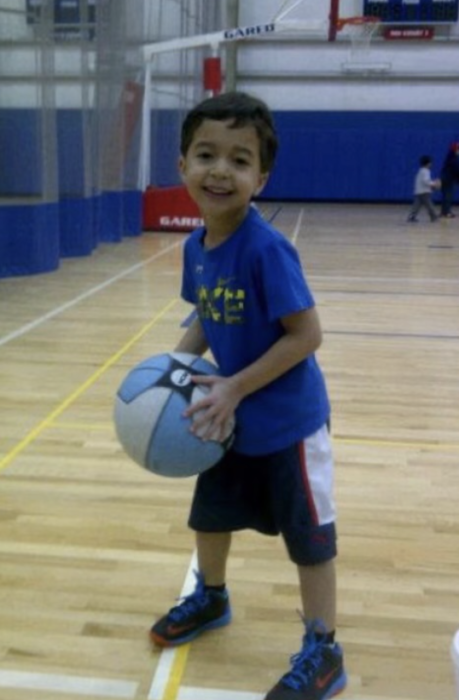With fifteen seconds left in the fourth quarter, down by one point, the point guard brings the ball up the court. He needs a basket to win. He can either drive to the hoop to score himself, take a jump shot and hope for the best or draw a double team from the defense and pass to the open man for a game-winning shot. The decision must be made within seconds, and the wrong choice will result in a loss, while the right one gives his team a chance to win the game. This spur-of-the-moment decision is one that every point guard grapples with.
Basketball, James Naismith’s 1891 invention, has always been present in Carter Samuels’ (Form V) life. Samuels was introduced to the game as soon as he could walk and has been playing basketball for as long as he can remember – first with his dad, Jason, then his younger brother, Warren and now in five-on-five games against other kids his age. His dad introduced him to the game and taught him about NBA greats, including Kobe Bryant, Magic Johnson and Allen Iverson. Through constant watching and playing, Samuels’ game is constantly improving.
Samuels, who always plays point guard, strives to be the best decision-maker on the court. He wants to be not only the best scorer but the best defender, passer and ball-handler as well. As a team sport, basketball requires all five players to work together incessantly to achieve success.
Since playing on organized teams at age six, Samuels has looked up to one of the best basketball players of all time, Lebron James, as his hero. This is partially because his family is from Miami, where James used to play (and Samuels watched him in person), but it is also because James makes all the right choices. “There are so many different elements of the game, and ever since I’ve been watching basketball, he’s the best at all of them,” explained Samuels.
To Samuels, team competition is the best part of basketball – not the individual statistics or highlights, but being able to play as a unit and win games. Samuels is dedicated to becoming as talented a team player as possible, but the key is what he works on in practice. “There’s so much you can do in practice to get better,” he said. It’s not just about being able to shoot, pass or handle the ball, but being able to do all of it effectively. Whether competing or practicing for his school, Fieldston, or working on his game independently, Samuels plays multiple hours of basketball daily to ensure he is always as seasoned as possible.
Even though he enjoys the game’s competitive nature more than anything else, basketball has always served as a comfort zone in which Samuels can be himself: “Basketball is a space where I can think about nothing else, only the game.”
Everyone has bad days. They are unavoidable and non-negotiable. However, if Samuels is having a bad day, he heads to the court, and “always feels better afterward” Especially at an academically rigorous school like Fieldston, basketball is an absolute necessity to Samuels. It isn’t just a game for him; it’s a sanctuary.
Samuels, the point guard, brings the ball up the court. He needs a basket to win. Just like in practice, he focuses on all of his skills. He considers the possibility of shooting, passing to the open man or driving to the basket, all while protecting the ball from the defense. In a basketball game, normally fewer than half of the shots taken are successful. The percentage is much lower when the shots are heavily guarded. As the point guard, Carter is well aware of this. Instead of attempting to be the hero (with an unwise shot), he makes the noble decision to drive towards the basket and draw the defense in towards him. It may be more satisfying to take the shot himself and trust in his own ability, but thousands of hours of practice have taught him that unselfish play wins games. With three defenders on him, he passes to his unguarded teammate for a shot, giving his team the best chance for victory.






